- Alfred-Wegener-Institut Helmholz-Centre for Polar- and Marine Research – Centre for Scientific Diving (CSD) (Training Facility)
- Federal Ministry of Education and Research (BMBF)
- German Maritime Museum (DSM)
- Scientific Diving Centre of the Christian-Albrechts.Universtität zu Kiel – Institute for Geosciences (Training Facility)
- Scientific diving Centre (FTZ), University Rostock (Training Facility)
- Institute for Applied Ecosystem Research IfAÖ GmbH
- The Leibniz Institute for Baltic Sea Research, Warnemünde (IOW)
- Leibniz Centre for Tropical Marine Research in Bremen (Training Facility)
- Limnological Research Station Iffeldorf -Chair of Aquatic Systems Biology, Technical University of Munich (Training Facility)
- Max-Planck-Institute for Marine Microbiology in Bremen
- Max-Planck-Institute for Ornithology
- Institute for Historical Coastal Research (NIhK), Wilhelmshaven
- Deutsches Meeresmuseum Stralsund – Museum für Meereskunde und Fischerei – Aquarien
- Examination Board for Scientific Diving of the DGUV
- TERAQUA GdBR (Training Facility)
- University Hamburg, Zentrum für Meeres- und Klimaforschung (Training Facility)
- University Oldenburg, Institute for Chemistry and Biology of the Marine Environment (ICBM) (Training Facility)
- Gewässerbiologische Station Kratzeburg
- Landesamt für Denkmalpflege im Regierungspräsidium Stuttgart
Alfred-Wegener-Institut Helmholtz-Zentrum für Polar- und Meeresforschung -Zentrum für wissenschaftliches Tauchen (Training Centre)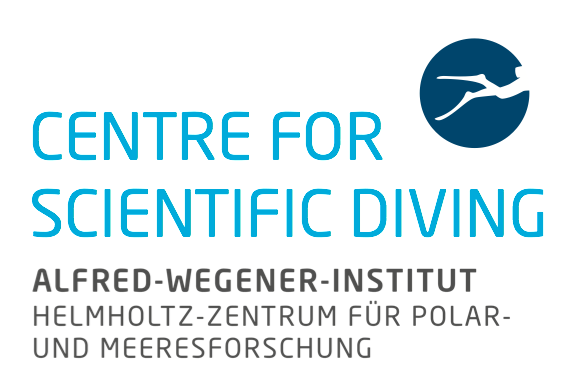
The training as a certified research diver at the Center for Scientific Diving (CSD) of the Alfred Wegener Institute, Helmholz Centre for Polar and Marine Research takes place at the Biological Institute Helgoland (BAH) according to the shortened training mode. Prerequisites for participation are a sound knowledge of scuba diving (e.g. PADI Rescue Diver) and at least 30 proven diving hours.
The course lasts between 4 and 5 weeks and is divided into two blocks in May/June and Sept/Oct. The time span between the two halves of the course is used to deepen the theoretical learning content in an e-learning seminar. Helgoland offers the possibility to train prospective research divers under different conditions (exposed and protected waters).
The CSD’s scientific work focuses on service-oriented sciences (procurement of sample material for national and international research institutions, establishment and implementation of experiments for internal and external non-diving research groups) and on the CSD’s own research projects (investigation of the spatio-temporal dynamics of fish and macrozoobenthos in the field of artificial hard substrates (cf. tetrapods) in coastal areas, development of coastal underwater observatories and autonomous measuring instruments in cooperation with external institutes and companies).
Address:
Centre for Scientific Diving, Alfred-Wegener-Institut Helmholz-Zentrum für Polar- und Meeresforschung
Kurpromenade 201
27483 Helgoland
Contact:
Prof. Dr. Philipp Fischer
Phone: +49 (0) 4725-8193344
Email: philipp.fischer@awi.de
Homepage
Federal Ministry of Education and Research
Address:
Hannoversche Straße 28-30
D-10115 Berlin
Contact:
Homepage
German Maritime Museum
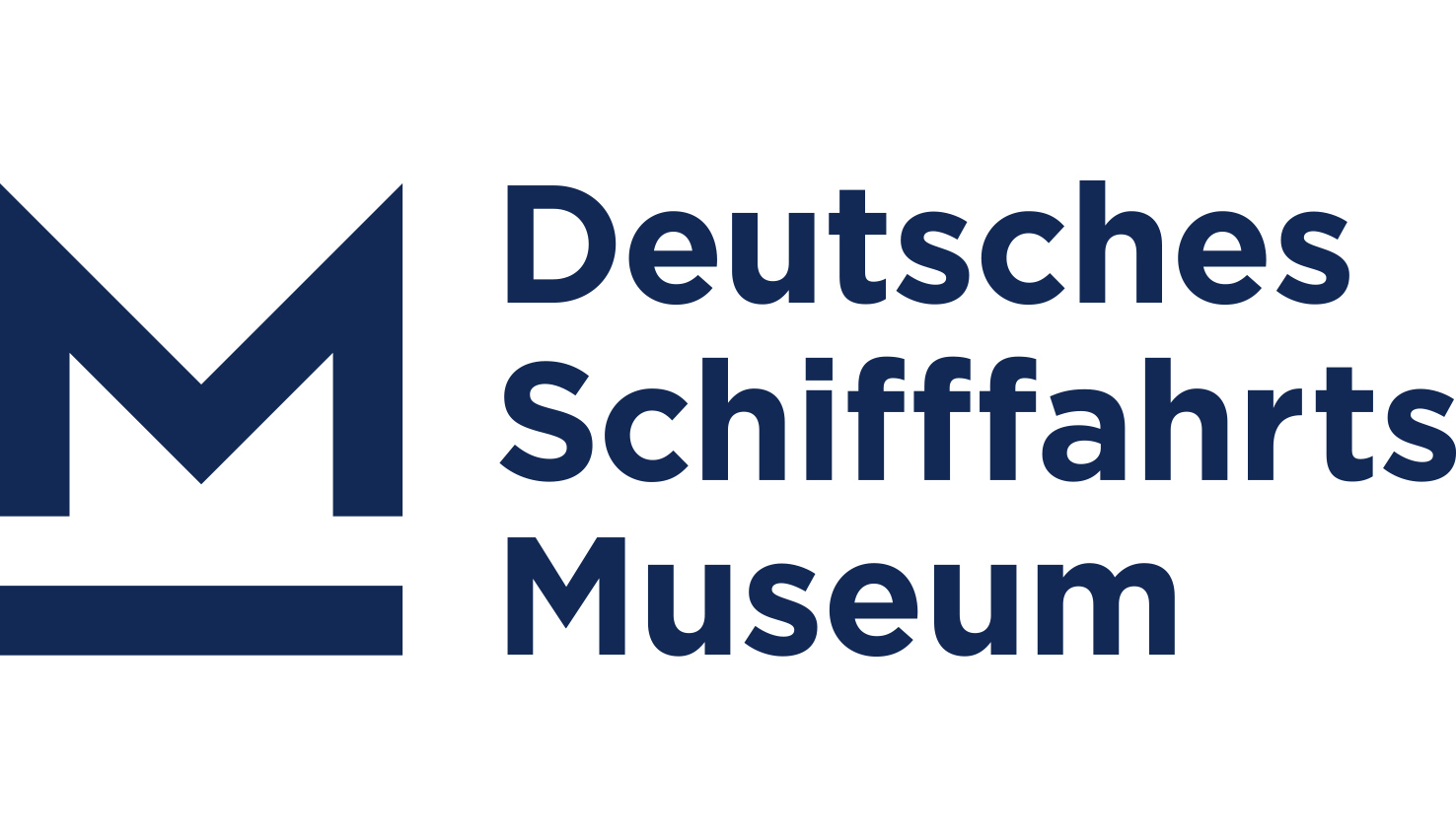
The objective of the German Maritime Museum – Leibniz Institute for German Maritime History is to create a scientific basis for the evaluation of shipwrecks located in the Exclusive Economic and Coastal Zone of the North Sea. Diving is used as a scientific method to answer the following key questions:
- What is the state of conservation of the wrecks and how does it change over time?
- What is the scientific potential of the wrecks as an archaeological source and biological object of study?
- What statements can be made about the origin, construction, sinking and function of the vehicle on the basis of its construction?
The German Maritime Museum does not offer any training of its own. On request, its archaeological diving expertise is available to the training facilities as part of their training courses.
Address:
Deutsches Schiffahrtsmuseum Hans-Scharoun-Platz 1
D-27568 Bremerhaven
Contact:
Prof. Dr. Sunhild Kleingärtner
Phone: +49 (0) 4714820749
Email:kleingaertner@dsm.museum
Scientific diving Centre of the Christian-Albrechts-Universität zu Kiel – Institute for Geosciences (Training Centre)
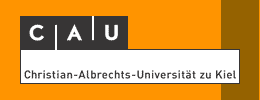 The Scientific Diving Centre of the University of Kiel (FTZK) was founded in the 1960s and is one of the oldest and at the same time the largest research diving centers of its kind in Germany and worldwide. It owes this to the fact that it is located between the North Sea and the Baltic Sea, as well as nearby Limnic waters, where aquatic research has always been a top priority. The main task of the FTZK is to support research projects for which manned work under water is required. It is also a training facility recognised by the statutory insurance company that trains personnel to become certified research divers. All aquatic disciplines at the University of Kiel and partner institutions are considered equally. Approximately 50 active, certified research divers with different technical expertise as well as extensive logistics are available for research diving missions in various fields of application. In the annually offered full and final courses to become a certified research diver, not only skills related to diving are taught, but also the handling of specialist working techniques and interdisciplinary work. The training blocks include a one-week diving camp in Denmark as well as trips with scientific vessel Littorina, which was designed as a diving base ship. The 12 training places are allocated to institutions in biology, geosciences and prehistory and early history, but applications from institutes with a different orientation or external institutes are also considered. The FTZK also offers further training measures (e.g. additional qualification as a scuba diving operations manager; Kiel diving medicine), also in close cooperation with the Marine Medical Institute in Kronshagen, as well as training units in indoor and outdoor water. The FTZK is a member of the KFT.
The Scientific Diving Centre of the University of Kiel (FTZK) was founded in the 1960s and is one of the oldest and at the same time the largest research diving centers of its kind in Germany and worldwide. It owes this to the fact that it is located between the North Sea and the Baltic Sea, as well as nearby Limnic waters, where aquatic research has always been a top priority. The main task of the FTZK is to support research projects for which manned work under water is required. It is also a training facility recognised by the statutory insurance company that trains personnel to become certified research divers. All aquatic disciplines at the University of Kiel and partner institutions are considered equally. Approximately 50 active, certified research divers with different technical expertise as well as extensive logistics are available for research diving missions in various fields of application. In the annually offered full and final courses to become a certified research diver, not only skills related to diving are taught, but also the handling of specialist working techniques and interdisciplinary work. The training blocks include a one-week diving camp in Denmark as well as trips with scientific vessel Littorina, which was designed as a diving base ship. The 12 training places are allocated to institutions in biology, geosciences and prehistory and early history, but applications from institutes with a different orientation or external institutes are also considered. The FTZK also offers further training measures (e.g. additional qualification as a scuba diving operations manager; Kiel diving medicine), also in close cooperation with the Marine Medical Institute in Kronshagen, as well as training units in indoor and outdoor water. The FTZK is a member of the KFT.
Address:
Institut für Geowissenschaften
Ludewig-Meyn-Straße 10
24118 Kiel
Contact:
Markus Zimmerer
Phone:+49 (0) 431-8805041
Email:markus.zimmerer@ifg.uni-kiel.de
Homepage
Scientific Diving Centre (FTZ) University Rostock (Training Centre)
The Scientific Diving Centre (FTZ) at the University of Rostock has been training research divers according to professional association rules since 1995. It thus continues a long tradition – scientific divers (as light commercial swimming divers) were trained as early as 1961 with the appointment of the first instructor. Within the framework of a cooperation agreement, scientific diving instructors from the Institute of Biosciences work at Math.-Naturwiss. Fak. of the University Rostock. This team of trainers with many years of experience is complemented by experienced research divers and physicians.Full training courses still play the dominant role at the FTZ. In principle, however, shortened training courses are possible if the KFT specifications are observed. The full training has so far been divided into 3 blocks: that is 3 weeks Febr/March (Theory an swimming pool) + 2 weeks lake diving + 3 weeks diving in the Baltic Sea. In principle, however, shortened training courses are possible if the KFT specifications are observed. The full training has so far been divided into 3 blocks: that is 3 weeks Febr/March (theory / SH) + 2 weeks Binnensee + 3 weeks Baltic Sea. The training is financed to 90% by participants fees.
The FTZ supports all diving assignments at the University Rostock and, if necessary, at the cooperation partners IOW and LAKD materially and personnel-wise. The FTZ also acts as an advisor for external institutions that employ research divers. To a certain extent, research diving assignments have already been carried out as scientific services.
If necessary, the FTZ develops and implements further training programmes. This means, for example, that first aid refresher courses / training are offered every year. The course “Nitrox for Research Divers” is also integrated here.
The FTZ is open for interested persons from the whole federal territory and from all relevant occupational groups – also for non-university members. In this respect, the development of methods for the use of research divers is oriented towards interdisciplinary applications and not necessarily towards specific disciplines. In recent years, the FTZ has been working on a solution for an UW-GPS. In close cooperation with a Chilean university it was possible to develop several device variants and to use them in (partly international) diving projects. From this, georeferenced UW photos and videos can be created, which can also be assigned to CTD data.
For the work on the Baltic Sea we use our own smaller working boats and if necessary, also larger ships (e.g. the cutter GADUS or chartered the JASMUND, PRAUNUS or GOOR II or also the ELISABETH MANN BORGESE).
Address:
Mathematisch-Naturwissenschaftliche Fakultät Institut für Biowissenschaften,
Lehrstuhl Meeresbiologie
Albert-Einstein-Str. 3, Raum 103
18059 Rostock
Contact:
Ansprechperson: Anne Herbst
Tel .: +49 (0) 381 498-8925
Fax.: +49 (0) 381 498-6052
Email: anne.herbst@uni-rostock.de
Homepage
Institute for Applied Ecosystem Research IfAÖ GmbH
The Institute for Applied Ecosystem Research GmbH, IfAÖ for short, has been researching and assessing terrestrial and aquatic biotopes and ecosystems for more than 25 years. Founded in 1993, the private research institution focuses on the investigation, assessment and evaluation of changes in ecosystems caused by natural and human activities. With a broad expertise of more than 90 employees and extensive technical equipment for field work as well as in the numerous laboratories of the institute, projects from companies as well as state and federal authorities can be processed quickly.
The Scientific Diving Group is part of the Department of Benthic Organisms and Habitats, whose work focuses primarily on inventorying, monitoring and assessing the status of benthos in aquatic ecosystems. Sampling with research divers is an important method of investigation in which data can be obtained selectively and gently – especially in sensitive, protected ecosystems such as reefs, lagoons or sandbanks.
With the workboat “Aegir”, which is well equipped especially for missions with scientific divers, the diving group can react quickly and flexibly to requests.
Address:
Institut für Angewandte Ökosystemforschung IfAÖ GmbH
Alte Dorfstrasse 11
18184 Neu Droderstorf
Contact:
Stefanie Breyer
Phone: +49 (0) 38204 61828
Email: breyer@ifaoe.de
Homepage
Leibniz- Institut für Ostseeforschung Warnemünde (IOW)
The Leibniz Institute for Baltic Sea Research in Warnemünde has existed since 1992 and emerged from the former Institute for Oceanography of the Academy of Sciences of the GDR. Divers had already been used for research purposes at this location since the end of the 1950s. Currently, the IOW has about 200 employees in four sections (physics, biology, chemistry and geology) and in central facilities and has a high-performance diving group of 10 to 15 people. The missions of our research divers take place mainly in the Baltic Sea within the framework of numerous projects and monitoring tasks. Between 50 and 100 diving hours are completed each year. The following are examples of important research diver assignments: Macro Zoo benthos mapping, jellyfish project, supervision of MARNET stations for monitoring the hydrography of the Baltic Sea, geo-mapping of sediment types, UW archaeology SINCOS project, etc. Our institute has recently launched a website (link: uwfotos.io-warnemuende.de) where our underwater image archive can be viewed georeferenced.
The IOW provides personnel and technical support for the training of research divers at the University of Rostock. Between 1995 and 2013, 220 research divers were trained here according to professional association guidelines.
Address:
Leibniz-Institut für Ostseeforschung Warnemünde
Seestrasse 15
D-18119 Warnemünde
Contact:
Erik Stohr
Tel .: +49 (0) 381 5197 147
Email: erik.stohr@io-warnemuende.de
Homepage
Leibniz Centre for Tropical Marine Research (ZMT) (Training Centre)
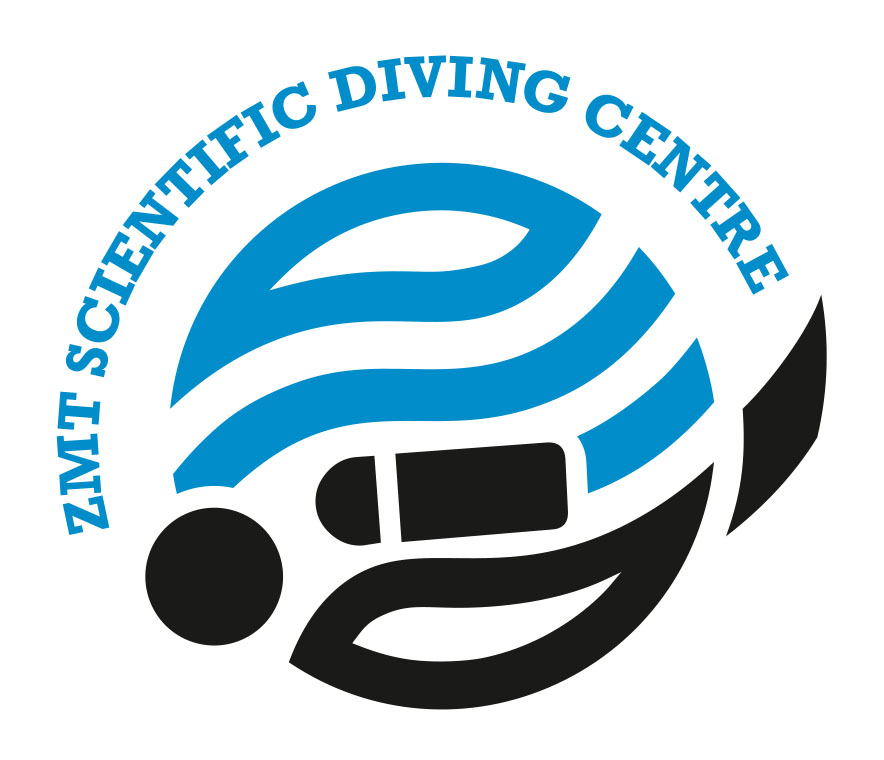 The Leibniz Centre for Tropical Marine Research (ZMT) aims to create a scientific basis for the protection and sustainable use of tropical coastal ecosystems. Since diving as a scientific method is indispensable for the ZMT, training is offered that specifically prepares students for work in the tropics. The focus of the training is comparable to that of the other training centres and corresponds to KFT guidelines. However, the training takes place in warm waters and special attention is paid to occupational safety in the tropics. Due to the international composition of the ZMT staff, the training and examination is held in English.
The Leibniz Centre for Tropical Marine Research (ZMT) aims to create a scientific basis for the protection and sustainable use of tropical coastal ecosystems. Since diving as a scientific method is indispensable for the ZMT, training is offered that specifically prepares students for work in the tropics. The focus of the training is comparable to that of the other training centres and corresponds to KFT guidelines. However, the training takes place in warm waters and special attention is paid to occupational safety in the tropics. Due to the international composition of the ZMT staff, the training and examination is held in English.
The training comprises two blocks of two weeks each in the field, but is supported by preparatory training sessions in the indoor pool. Training locations included Helgoland, Crete, Sweden, Israel. Prerequisite for participation are sound diving skills from the recreational diving sector (e.g. VDST Silver or PADI Rescue Diver) and at least 30 proven diving hours.
Address:
Leibniz Zentrum für Marine Tropenökologie
Fahrenheitstr. 6
28359 Bremen
Contact:
Dr. Michael Schmid
Tel: +49 (0)421 2380059
Fax: +49 (0)421 2380030
Email: michael.schmid@leibniz-zmt.de
Homepage
Limnologische Station Iffeldorf – Lehrstuhl für Aquatische Sysembiologie, Technischen Universität München (Training Facility)
Research at the Chair of Aquatic Systems Biology is dedicated to the following core questions: How do aquatic ecosystems function? How do natural and anthropogenic factors (e.g. extinction processes or invasions of neobiota) influence the functionality of these systems? How can effective strategies be developed to protect aquatic biodiversity that take ecological and genetic processes into account?
The training to become a research diver is integrated into the module Underwater Ecology (12 ECTS) of the Biology degree programme. Only enrolled students or employees of universities can participate.
The module is divided into a marine biology part, which takes place in Croatia, and a limnology part, which takes place at Lake Starnberg. With appropriate previous knowledge, the training can be shortened by arrangement.
Course of events:
– 2 weeks block course in the Olympiahallenbad Munich (Feb./March).
– 2 weeks block course in Cres, Croatia (June)
– 4 weeks block course at the Limnological Station, Lake Starnberg (September)
For the theoretical training, the e-learning platform TUM Moodle is used throughout the semester. During the block courses there are seminars and lectures by the students on marine biological and limnological topics.
Address:
Wissenschaftszentrum Weihenstephan
Hofmark 1-3
82393 Iffeldorf
Contact:
Dipl.Ing(FH) Stefan Zimmermann
Phone: +49 (0) 8856 81021
Mobile: +49 (0) 1520 1724668
Email: stefan.zimmermann@tum.de
Homepage
Max-Planck-Institute for Marine Microbiology in Bremen
The MPI for Marine Microbiology in Bremen studies the microorganisms of the oceans and their marginal seas. In the four departments Biogeochemistry, Microbiology, Molecular Ecology and Symbiosis, scientists from 20 nations investigate the ecology and physiology of bacteria, archaea and eukaryotic microorganisms, the biogeochemical material cycles they drive in the water column, in sediments and on rocks, as well as the biological interactions between bacteria and their host organisms in marine symbioses. The areas of investigation range from tropical to polar latitudes and from the land/sea transition zone, such as in the Wadden Sea of the German Bight, to several thousand metres of water depth in the ocean. The focus is often on microbial processes at sites with extreme environmental conditions, such as in Arctic ice, at hot deep-sea springs and cold seeps, in oxygen minimum zones or anoxic basins such as the Black Sea, in extremely saline lakes and lagoons or in the deep sediment biosphere several hundred metres within the seabed.
At shallow water sites, scuba divers are used for obtaining sample material, deploying field experiments and in situ measurements with electrochemical microsensors. Research projects involving diver deployments include, for example, investigations of shallow water hydrothermal vents in the Mediterranean Sea near Milos (Greece) and Panarea (Italy), determining the influence of pH and CO2 on biogeochemistry and microbial communities in coral reefs (Australia, Papua New Guinea), investigations of communities at freshwater springs at the bottom of the Dead Sea (Israel) and research into chemosynthetic symbioses in seagrass beds near Elba (Italy).
Address:
Max-Planck-Institut für Marine Mikrobiologie
Celsiusstr. 1
28359 Bremen
Contact:
Dr. Christian Borowski
Phone: +49 (0)421 2028649
Email: cborowsk@mpi-bremen.de
Homepage
Max-Planck-Institute for Ornithology
Address:
Universitätsstraße 10
78464 Konstanz
Contact:
Dr. Alex Jordan
Email: ajordan (at) orn.mpg.de
Deutsches Meeresmuseum Stralsund – Museum für Meereskunde und Fischerei – Aquarien
The Deutsches Meeresmuseum as a foundation under civil law is dedicated to the promotion of culture, science and research as well as the operation of the museum as a general educational, scientific, cultural, non-profit and nationally representative institution. The foundation consists of four locations, but scientific diving tasks are undertaken especially in and for the aquariums of the Ozeaneum and Meeresmuseum, as well as for the scientific department. A great deal of work in the aquariums can only be carried out by diving. These diverse tasks are accomplished by a diving team of several people. But diving is not limited to the aquariums – expeditions to catch marine organisms are regularly done. This often involves visiting great water depths, which, in addition to the rules of DGUV-R 101-023, require special techniques, such as standardisation of equipment, gases and emergency procedures, decompression techniques and use of rebreathers and scooters. Safety always comes first, any necessary deviations from DGUV-R 101-023 are carefully examined, documented in risk assessments and the establishment of alternative safety is pointed out. But diving in the aquariums also requires very sophisticated diving skills. It is important not to damage the aquarium technology and decoration, not to injure animals and not to impair visibility through ground contact, as visitors must be guaranteed a good view into the aquariums. Very good buoyancy and trimming skills, appropriate fin flapping and manoeuvring techniques, as well as good control are indispensable qualities here.
Address:
Deutsches Meeresmuseum
Museum für Meereskunde und Fischerei · Aquarium
Stiftung des bürgerlichen Rechts
Katharinenberg 14 – 20
18439 Stralsund
Contact: Dipl. Geogr. Henning May (Head of Diving)
Email: henning.may@ozeaneum.de
Homepage
Examination Board for Scientific Diving of the DGUV
The examination board is the body for the examination to complete the training to become a certified research diver in accordance with BGR/GUV-R 2112. It is under the direction of the DGUV Civil Engineering Department.
The examination board, which usually consists of three members, is chaired by the head of the subject area diving work of the civil engineering department and includes a diving physician and a diving technician. The examination board is appointed for each examination in changing composition. The examination is conducted according to the examination regulations of the KFT.
Address:
BG BAU – Prävention
Helmstedter Str. 2
10717 Berlin
Contact:
Dipl.-Ing. Peter Husmann
Phone: +49 231 5431-1004
Email: Peter.Husmann@bgbau.de
TERAQUA GdBR (Training Facility)
Teraqua has been commissioned by the Commission for Underwater Archaeology of the Association of State Archaeologists in the Federal Republic of Germany to train scientific divers. Our Lake Constance-based training company, in cooperation with the Landesamt f. Denkmalpflege, Hemmenhofen, mainly trains archaeologists, with a focus on inland water archaeology. Students and specialists from all other aquatic disciplines are welcome. As a privately organised company, we attach great importance to practice-oriented training. Within the framework of field assignments, research divers are given the opportunity to gain experience in diving under ice and diving in currents. We only offer the “shortened training”, i.e. applicants must show us experience and a ** – brevet as an entry requirement.
Teraqua offers further training to become an “archaeological research diver”, which is required by the Association of State Archaeologists as a prerequisite for excavation management in underwater archaeological investigations.
Address:
Ausbildungsbetrieb für Forschungstaucher / Archäologische Forschungstaucher
Ballrechterstr. 3
79219 Staufen im Breisgau
Contact:
M. Mainberger
Tel.: +49 (0) 7633 982348
Email: martin.mainberger@teraqua.de
Homepage
University Hamburg, Institute of Oceanography (Training Facility)
The “Scientific Diving Group of the University of Hamburg” has existed at the Institute of Oceanography of the University of Hamburg since 1977.
As part of the course “Scientific Diving”, part of the training (= preliminary training) to become a research diver is offered. The semester-long training includes two hours of theoretical instruction and two hours of practical training in the university’s indoor swimming pool every week. The open-water training takes place mainly in local waters. Other diving training waters are located on the German and Danish Baltic Sea coasts and in Lower Saxony. For trained and certified research divers, a private excursion abroad is organised once a year. The training is limited to 20 participants per course (every 2 years). After successful pre-training, graduation as a research diver is required in one of the other training companies.
Address:
Institut für Meereskunde
Bundesstr. 53
20146 Hamburg
Contact:
Dr. Andreas Lipp
Email: an_lipp@t-online.de
Homepage
Universität Oldenburg, Institut für Chemie und Biologie des Meeres (ICBM) (Training Facility)
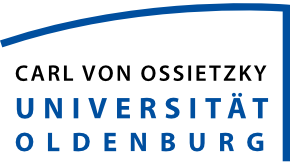 Under the direction of Frank Donat, a complete training course with currently 8-9 participants has been held annually since 1999. The training takes place over two semesters and starts in the winter semester. The six-week final training lasts from mid-August to the beginning of October.
Under the direction of Frank Donat, a complete training course with currently 8-9 participants has been held annually since 1999. The training takes place over two semesters and starts in the winter semester. The six-week final training lasts from mid-August to the beginning of October.
Among other things, the Environmental Biochemistry group conducts diver-assisted studies in the fields of ecology (e.g. chemical signals, defence against predators). The working areas so far have been in the North Sea, the Mediterranean, the Red Sea and the Indo-Pacific.
Address:
Universität Oldenburg Institut für Chemie und Biologie des Meeres
Postfach 2503
26111 Oldenburg
Contact:
Dipl. Biol. Frank Donat
Phone: +49 (0) 441 7983457
Email: frank.donat@uni-oldenburg.de
Homepage
Short film: https://www.youtube.com/watch?v=uIElt1GBSOQ
Gewässerbiologische Station Kratzeburg GmbH
 The Aquatic Biological Station in Kratzeburg was founded in 2017 by employees of the Society for Nature Conservation and Landscape Ecology (Gesellschaft für Naturschutz und Landschaftsökologie e.V.). (GNL). They have many years of experience in the recording and long-term observation of limnic fauna and flora, especially fish and stoneworts. The use of scientific divers has established itself as an indispensable methodological standard for this purpose. A special focus of the work of the research divers is the mapping and monitoring of submerged macrophytes in clear water lakes of the Northeast German Lowlands. As early as 1998, the GNL initiated a monitoring programme in which divers record the vegetation in lakes in Mecklenburg-Western Pomerania in a 3-year cycle so that changes can be documented. In addition, the research diving team of the aquatic biology station regularly participates in mapping of the limnic submerged macrophytes, which takes place on behalf of the state offices to fulfil the reporting obligations of the WFD. Another field of activity is the inventory of various molluscs in flowing and standing waters in northern Germany.
The Aquatic Biological Station in Kratzeburg was founded in 2017 by employees of the Society for Nature Conservation and Landscape Ecology (Gesellschaft für Naturschutz und Landschaftsökologie e.V.). (GNL). They have many years of experience in the recording and long-term observation of limnic fauna and flora, especially fish and stoneworts. The use of scientific divers has established itself as an indispensable methodological standard for this purpose. A special focus of the work of the research divers is the mapping and monitoring of submerged macrophytes in clear water lakes of the Northeast German Lowlands. As early as 1998, the GNL initiated a monitoring programme in which divers record the vegetation in lakes in Mecklenburg-Western Pomerania in a 3-year cycle so that changes can be documented. In addition, the research diving team of the aquatic biology station regularly participates in mapping of the limnic submerged macrophytes, which takes place on behalf of the state offices to fulfil the reporting obligations of the WFD. Another field of activity is the inventory of various molluscs in flowing and standing waters in northern Germany.
Address:
Dorfstraße 31
17237 Kratzeburg
Contact:
Markus Tschakert
Phone: +49 39822 20474
Email: tschakert@gbst-kratzeburg.de
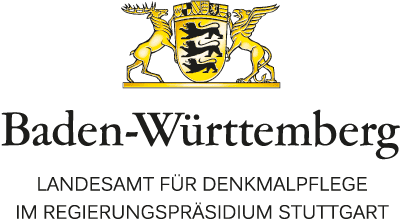 Landesamt für Denkmalpflege im Regierungspräsidium Stuttgart
Landesamt für Denkmalpflege im Regierungspräsidium Stuttgart
The State Office for Monument Preservation in the Stuttgart Regional Council (LAD) is responsible for the preservation and protection of cultural monuments in Baden-Württemberg. This also includes the monuments in waters and moors, which are supervised by the Wetland Archaeology Department at the Hemmenhofen office on Lake Constance. In order to be able to protect underwater settlement remains from prehistoric times or other cultural monuments in the water, they have been investigated underwater archaeologically for over 40 years. Today and in the future, certified research divers from the State Office for the Preservation of Monuments or research divers commissioned by the LAD will continue to look after, research and examine these cultural monuments. In addition, certified research divers are trained by the LAD in cooperation with the training company teraqua.
Address:
Landesamt für Denkmalpflege im Regierungspräsidium Stuttgart
Berliner Str. 12
73728 Esslingen
Contact:
Präsident des LAD Prof. Dr. Claus Wolf, Berliner Str. 12, 73728 Esslingen /
Dr. Julia Goldhammer, Referentin für Feuchtbodenarchäologie, Landesamt für Denkmalpflege im Regierungspräsidium Stuttgart, Fischersteig 9, 78343 Gaienhofen-Hemmenhofen
Tel: +49 7735 93777 126
Email: julia.goldhammer@rps.bwl.de
